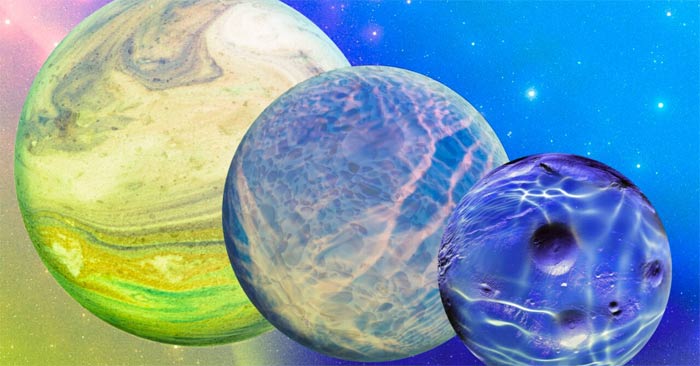How Alien Life Exists Without Water
New research suggests alien life could exist on hot, rocky planets, sustained not by water but by a salty liquid.

The search for alien life often revolves around finding similar conditions to sustain life on Earth. But what if aliens don't need the same things we do to survive?
What is the liquid that sustains alien life?
An exciting new study from MIT suggests that liquids, not just water, are the key to habitability beyond Earth. The new study focuses specifically on ionic liquids, which planetary scientists believe could form on the surfaces of rocky planets and moons. Ionic liquids are resistant to high temperatures and low pressures, allowing them to remain in a stable liquid state, potentially friendly to biological molecules.
If confirmed, the proposal, published Aug. 11 in the Proceedings of the National Academy of Sciences, would significantly expand what is considered the 'habitable zone' of known exoplanets. By current standards, the habitable zone is defined as the band in planetary systems where liquid water can be maintained stably on the surface. When it comes to life, water is the key and indispensable ingredient.
' We think of water as essential for life because it's essential for life on Earth ,' Rachana Agrawal, lead author of the study and a postdoctoral fellow at MIT, told MIT News. ' But if we look at a more general definition, what we need is a liquid in which the metabolism for life can take place .'
The researchers were initially looking into the toxic, gassy atmosphere of Venus and whether such conditions could support extraterrestrial life. The planet is covered in clouds of sulfuric acid, a common byproduct of volcanic activity on Earth and perhaps on other rocky planets. While testing different methods for extracting organic compounds from sulfuric acid, the team found that each time, 'there was always a stubborn layer of liquid left behind '.

' From there, we had an idea of what this meant ,' Agrawal said. Sulfuric acid is found on Earth from volcanoes, organic compounds have been found on asteroids and other celestial bodies. So this made us wonder if ionic liquids could potentially form and exist naturally on exoplanets.
In this study, the scientists explored how ionic liquids might form naturally. They mixed various nitrogen-containing organic compounds with sulfuric acid in basalt rock, a common geological feature of rocky planets. The reaction occurred under hot, low-pressure conditions similar to those found on Venus or other rocky planets. They found that ionic liquids emerged from these experiments at temperatures up to 356 degrees Fahrenheit (180 degrees Celsius) and also at extremely low pressures.
' We were really surprised that ionic liquids formed under so many different conditions ,' study co-author and MIT astrophysicist Sara Seager told MIT News. The results also demonstrate the extraordinary stability of ionic liquids compared to water. If "pockets" of ionic liquids could survive on planetary surfaces for millennia, they would be "little oases for simple ionic liquid-based life forms ."
It makes perfect sense to start the search for extraterrestrial life by taking Earth and life on Earth as a starting point. But when we consider something that might contradict these basic assumptions, that's when the most groundbreaking and daring ideas come to fruition.
You should read it
- ★ Doctor of Philosophy of Science: We may have discovered traces of aliens already, we just don't know what it is.
- ★ The Russian astronaut announces to find extraterrestrial life on the ISS Space Station
- ★ Discovered evidence that 'Solar System 2.0' has water
- ★ Worrying news about where alien life might be hiding
- ★ Alien Hunting Mission Really Is Taking Place on Venus